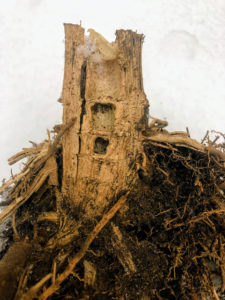Like any other plant, there are various species of bamboo which dictate how they grow, thrive, and can be contained. Before you can begin on a bamboo removal or bamboo containment project, you must first identify your bamboo species to fully understand what you’re working with.
Most people are not aware that bamboo is not a “tree” but actually a prehistoric grass. It is a very unique grass. Many varieties are hard to distinguish between. However, once your familiar with the anatomy and characteristics of the bamboo, you can start to distinguish between the anatomical structures of the common species in our area.
Culm
The vertical above ground growth of the bamboo. Also, what is referred to the the stalks or canes of the bamboo
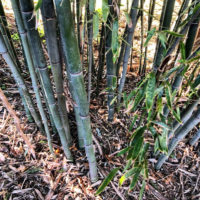
Sulcus Groove
A groove in the culm formed the the limb during the growth process. This groove is very pronounced in the Phyllostachys.
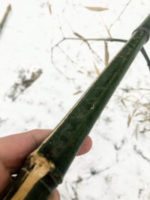
Bamboo Node
The node is the part of the culm that separates the culm into segments. The node is also where the branches form. The rhizomes also have nodes. This is where the buds from that grow into a culm or another rhizome.
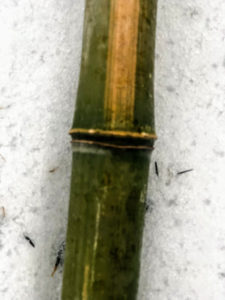
Bamboo rhizome and stump
This Picture illustrates how a culm propagates off of the rhizome. A new shoot forms then the roots follow. growing downward and outward forming a base. On the left of the stump is the rhizome. You can see the hairs, those are the secondary roots. The secondary roots form on the rhizome node. On each rhizome node is also rhizome bud that grows into a new culm or rhizome.
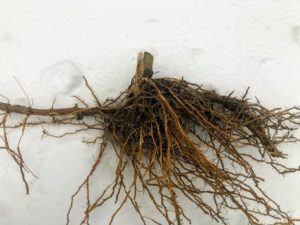
New Shoots
Also referred to as bamboo spears. This is What a new bamboo shoot looks like. At this stage the thickness of the culm the same size it will be at full height. Bamboo culms do not grow wider at the age. You can also see the bamboo sheath. This sheath is a leaf like covering that protects the new growths. They fall off at the bamboo grows in height. New Rhizomes also have sheaths know as the rhizome sheath.
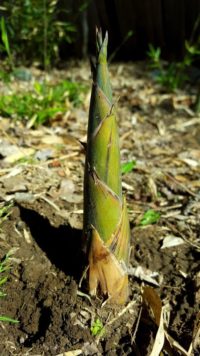
More Bamboo bases
This picture illustrates out many culms can develope along the rhizome
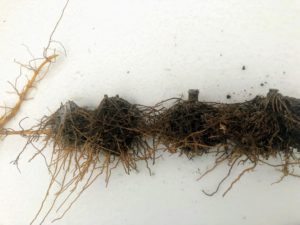
Stress canes
This rhizome here illustrates what a stress cane looks like. If you were to remove a part of the grove or leave behind a segment of rhizome this is what happens. The buds at the nodes all shoot upward in an attempt to get sunlight to continue photosynthesis. stress cane growth looks much different then normal culms. Stress growth is very short, busy and full of leaves.
